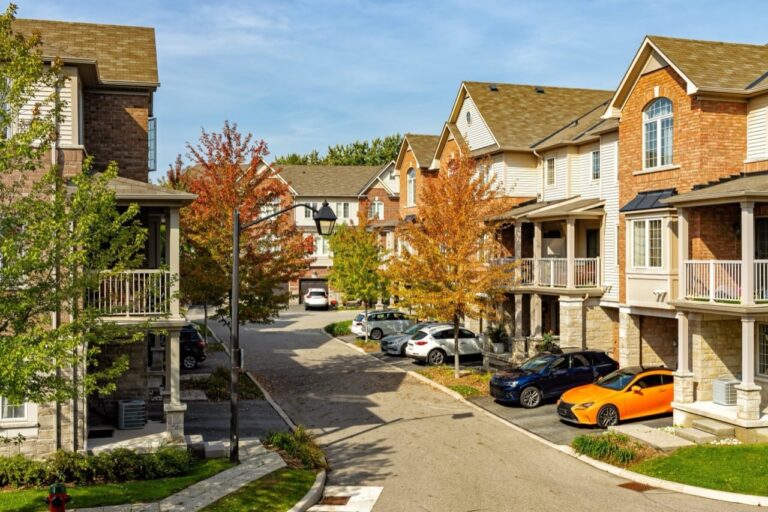For many homebuyers, purchasing a condo can be an attractive alternative to buying a traditional house. Condos often come with appealing amenities, lower maintenance responsibilities, and the promise of a convenient lifestyle. However, one unique aspect of condo ownership is the condo fees that come along with it. These monthly fees can vary significantly depending on the building and its amenities, but what exactly do they cover?
Understanding what your condo fees pay for is essential to making an informed decision when buying a condo. In this article, we’ll break down the numbers and explore what condo fees actually cover, why they vary, and how to ensure you’re getting good value for your money.
What Are Condo Fees?
Condo fees, also known as maintenance fees, are mandatory monthly payments made by condo owners to their building’s condominium corporation. These fees are used to maintain and manage the shared areas of the building and cover various operational costs.
The amount you pay in condo fees depends on several factors, including the size of your unit, the building’s amenities, and the overall budget set by the condo board.
Pro Tip: Always ask for a breakdown of the condo fees before purchasing a unit. This will help you understand what you’re paying for and avoid surprises.
What Do Condo Fees Actually Cover?
Condo fees typically cover a range of services and expenses related to the upkeep and management of the building. Here’s a breakdown of the most common expenses:
1. Building Maintenance and Repairs
Condo fees are used to maintain the building’s common areas, such as hallways, lobbies, elevators, and exterior spaces. This includes routine cleaning, landscaping, snow removal, and general repairs.
What This Means for You:
- Clean and well-maintained common areas
- Prompt repairs to shared spaces
- A well-kept building that retains its value
2. Utilities for Common Areas
Your condo fees may cover the cost of utilities in shared spaces, such as lighting, heating, and cooling in hallways, lobbies, and recreation areas.
Pro Tip: Some condo fees also cover water and heat for individual units. Be sure to check what utilities are included in your specific building.
3. Insurance for the Building
The condo corporation is responsible for insuring the building’s structure and common areas. This insurance is typically included in your condo fees and covers things like fire, flooding, and other damages to the building’s exterior and shared spaces.
Important Note: This insurance does not cover your personal belongings or any upgrades you’ve made to your unit. You’ll need to purchase your own condo insurance policy for that.
4. Reserve Fund Contributions
A portion of your condo fees goes into a reserve fund, which is a savings account used to cover major repairs and replacements. This could include things like roof repairs, elevator replacements, or plumbing upgrades.
Why This Matters:
- A well-funded reserve fund means fewer unexpected costs for condo owners.
- It ensures that the building remains in good condition over the long term.
Red Flag: If a building’s reserve fund is underfunded, it could result in a special assessment, where condo owners are required to pay a lump sum to cover major repairs.
5. Amenities and Services
If your condo building offers amenities like a gym, pool, party room, or concierge service, a portion of your condo fees will go toward maintaining and staffing these facilities.
What This Means for You:
- Access to convenient amenities without having to leave your building
- Regular maintenance to keep amenities in top condition
Pro Tip: Consider whether you’ll actually use the amenities before purchasing a condo with high fees. If you won’t use them, you may be paying for features you don’t need.
Why Do Condo Fees Vary?
Condo fees can vary widely depending on several factors:
- Age of the Building: Older buildings may have higher fees due to increased maintenance and repair needs.
- Size of the Building: Larger buildings with more units may have lower fees per unit, as costs are spread across more owners.
- Amenities: Buildings with extensive amenities typically have higher fees to cover the costs of maintaining these features.
- Location: Condos in prime locations may have higher fees due to increased property values and maintenance costs.
Red Flag: Be cautious of condo fees that seem unusually low. This could indicate that the building is cutting corners on maintenance or has an underfunded reserve fund.
How to Evaluate Condo Fees
When considering a condo purchase, it’s essential to evaluate the condo fees and determine whether they provide good value for the services offered.
Key Questions to Ask:
- What does the fee cover?
- Are any utilities included?
- What is the current balance of the reserve fund?
- Have there been any recent special assessments?
- Are there plans for major repairs or upgrades?
Pro Tip: Request a copy of the building’s financial statements and reserve fund study to get a clear picture of its financial health.
Final Thoughts
Condo fees are an essential part of condo ownership, and understanding what they cover can help you make an informed decision when buying a unit. While these fees may seem like an added expense, they play a crucial role in maintaining the building and ensuring a comfortable living environment for residents.
By doing your research and asking the right questions, you can ensure you’re getting good value for your money and avoid any unexpected costs down the road.
Thinking about buying a condo? Need advice on navigating condo fees? Contact The Local Broker for personalized guidance and support to make your home-buying journey as smooth as possible.
